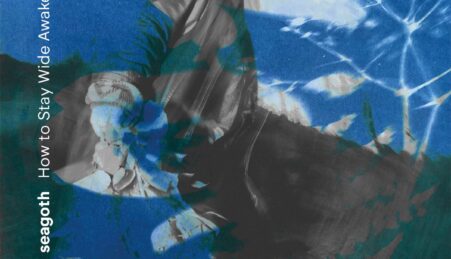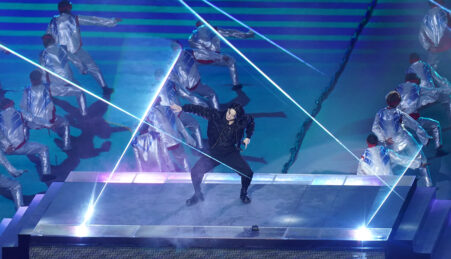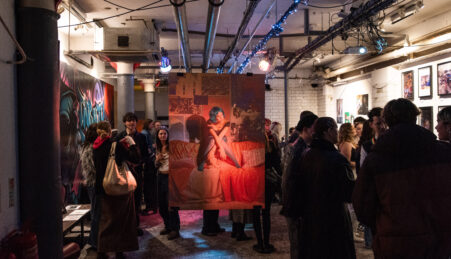By David Keyworth
“Tonight is a celebration,” said Dr David Cooper, in his introduction to: An Evening of Place Writing – in Fiction and Non-fiction. He explained that it was a chance to welcome Rachel Lichtenstein as Manchester Writing School’s first Reader in Place Writing. It was also an opportunity to congratulate Gregory Norminton (Senior Lecturer in Creative Writing Fiction), on the publication of his fifth novel, The Devil’s Highway.
Rachel Lichtenstein was the first to read at the event, at the International Anthony Burgess Foundation, on Thursday. David Cooper said that her writing was concerned with the “textual mapping of cities.”
She read two passages from her book – Estuary. Her exploration of the Thames Estuary, came about by accident or at least an invitation, from “a bunch of drunken artists” to join them and other writers and archeologists, on a fifty-ton Dutch barge.
After 50 interviews over a period of five years, the accidental odyssey had become a book, published by Penguin.
David Cooper – who teaches English at MMU – introduced The Devil’s Highway, as “a formally brilliant experiment.” Its author quipped: “I’m glad I wrote those words for you.”

The Devil’s Highway is a Roman road which passes near Gregory Norminton’s childhood Surrey home. Speaking to Humanity Hallows about its time-shift structure, the author said:
“I wrote the sections separately and initially envisaged them as three separate ‘books’ arranged in chronological sequence. It was my editor who suggested I splice the narratives together.”
The post-reading discussion opened with the question that must have been on nearly everyone’s mind. David Cooper asked what the authors understood by Place Writing and if they thought their own work came under that category.
Rachel Lichtenstein was happy to be counted as a Place Writer. She observed that geographical boundaries are often “fuzzy and flexible” and that this created room for the writer’s imagination.
Speaking later to Humanity Hallows, Rachel agreed that Place Writing was not a new genre but one which writers are “more self-conscious about” than before.
Her on-stage partner was a little more tentative in identifying himself as a Place Writer but he noted that “all stories need a place” and that his imagination was formed by where he lived as a child – on the edge of a forest.
Was it possible to avoid nostalgia, when writing place and the past? David Cooper asked.
“Guilty, hands up!”, was Rachel’s come-back. She clarified her response by saying that her aim was to capture stories of “what will slip away”, as it is submerged by redevelopment.
Gregory said that he tried “to write against my instinctive nostalgia.” He added that The Devil’s Highway may be over-gloomy because it speculates on a future where humans have not escaped the shadow of environmental doom.

He made a poignant emotional connection between the death of his mother and environmental damage. “Even without leaving home, home is going to leave us”, he said.
An audience member referred to her own feelings of being “haunted by the ghosts of people who lived there,”in her home state of Georgia, USA.
This was a chance for Rachel Lichtenstein to tell a terrifying story of being stranded on the barge, about a mile from Southend Pier. Frozen with fear, she wondered if the screams she and her barge-mate could hear were those of drowning sailors, in a 1667 tragedy recorded by Samuel Pepys in his diary.
Would Rachel and Gregory be tempted to swap non-fiction for fiction and vice versa? Rachel said that she was currently researching two projects – the Jewish community in the Caribbean and another London district – Whitechapel.
Without committing herself to a genre swap, she did speak enthusiastically about Hilary Mantel’s Reith Lectures and reference to historical fiction “bringing the unquiet dead to life.”
Gregory confessed an attraction to the poetic approach in Matsuo Basho’s (1644–1694) Haiku Journey.
He raised laughs with his reference to a participation in a World Wildlife Fund (WWF) project, filmed for TV. The producer had been tempted to make the author a presenter, because he’d enjoyed watching him suffer as he counted leatherback turtle eggs in tropical heat.
Speaking to Humanity Hallows about expressing his ecological concerns in a novel, Gregory said: “The problem I have found is that polemic can be alienating to readers – it is certainly inimical to good fiction, which is a realm of ambiguity and ambivalence, where an image or a moment of action resonate more powerfully than rhetoric or statistics.”
The discussion ended with the question of Place Writing’s relationship to political resistance. Rachel said, “All of the places I choose to write about are contested spaces.”
The International Anthony Burgess Foundation, a converted former mill, was nearly full to capacity for this event. Audience member James Carline said that the readings and discussions had “opened his eyes to the value of place writing,” particularly the part it could play in political activism.
The readings from the two Manchester Met staff members were preceded by shorter readings by Creative Writing students. Diane Mulholland read vivid poetry about London, Northumberland and the starry skies of her rural Australian childhood.
Danielle Smith’s novel-in-progress about a school in Wolverhampton raised laughs and memories of days in the classroom. Both students made their mark within the brickwork walls.
I left the event with a feeling that the definition of Place Writing, is, like so much of its subject matter, under development. But the event took us closer to a definition. Place Writing in Manchester is on firm literary ground.
David Keyworth is an MA Creative Writing student, specialising in poetry.







Leave a reply